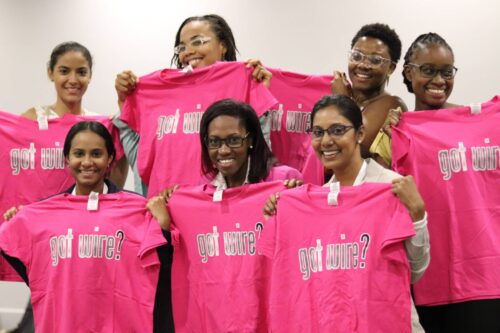
Women Powering the Energy Transition
The WIRE Network is ensuring women’s participation and leadership in island nations and beyond
In Hannah Olmberg-Soesman’s home country of Suriname, a small country on the northeast coast of South America, more than 200 communities are not connected to the national electric grid. As Olmberg-Soesman saw in her more than 10 years of volunteering in these rural communities, the few hours of electricity they receive each day from diesel generators is not enough to provide sufficient economic development opportunities. And this is especially true for the women, who are the main caretakers at home as well as the farmers on their agricultural plots. When Olmberg-Soesman met an entrepreneur working in solar energy, she realized she had found a way to make a difference.
In 2016, Olmberg-Soesman became a member of the Women in Renewable Energy (WIRE) network, a professional network for women working in energy in island nations that trains and connects women at various career stages to collaborate, inspire one another, and implement sustainable energy solutions. For many years, she worked tirelessly to provide reliable electricity to select rural communities throughout the country, empowering local women to trigger sustainable economic and social growth. “As an active member of the WIRE network I learn and teach, I inspire, and I am being challenged to live a meaningful life and help others to do so also,” she said in an interview with Forbes.
Women Making Change
Data shows women and girls are the most vulnerable to climate change impacts — making up 80 percent of climate refugees — and are exposed to other inequalities, including less access to energy services, financial services and property rights, greater food insecurity, and insufficient educational opportunities. And as in Suriname, many women in rural communities around the world are also responsible for agriculture activities, one of the first areas affected by climate change.
Despite these realities, women still don’t have equal opportunities to participate in key decision-making roles in clean energy sectors. The WIRE Network is changing that, helping to close the leadership gap. The WIRE Network is a professional community of over 570 men and women, from more than 60 countries. Over 80 women have participated in WIRE’s flagship mentorship program, which provides leadership and skills development opportunities through in-person convenings and facilitated online technical training. The mentor-mentee structure allows more senior-level women to guide mid-level women leaders on the rise. Women join as mentees the first year, then serve as mentors the second year. This makes the program structure unique in that it encourages long-term engagement of alumni.
“I often face what’s called ‘imposter syndrome’ – the inability to internalize and celebrate my accomplishments, or even to see them as accomplishments.” Says Kimisha Thomas, a WIRE Mentorship program alum from the Caribbean island of Dominica. “The WIRE Network helped place a definition to the way I was feeling. But speaking with this group of confident women, who share their knowledge and experience so freely, has really helped me to be more confident in my own abilities and more assertive.”
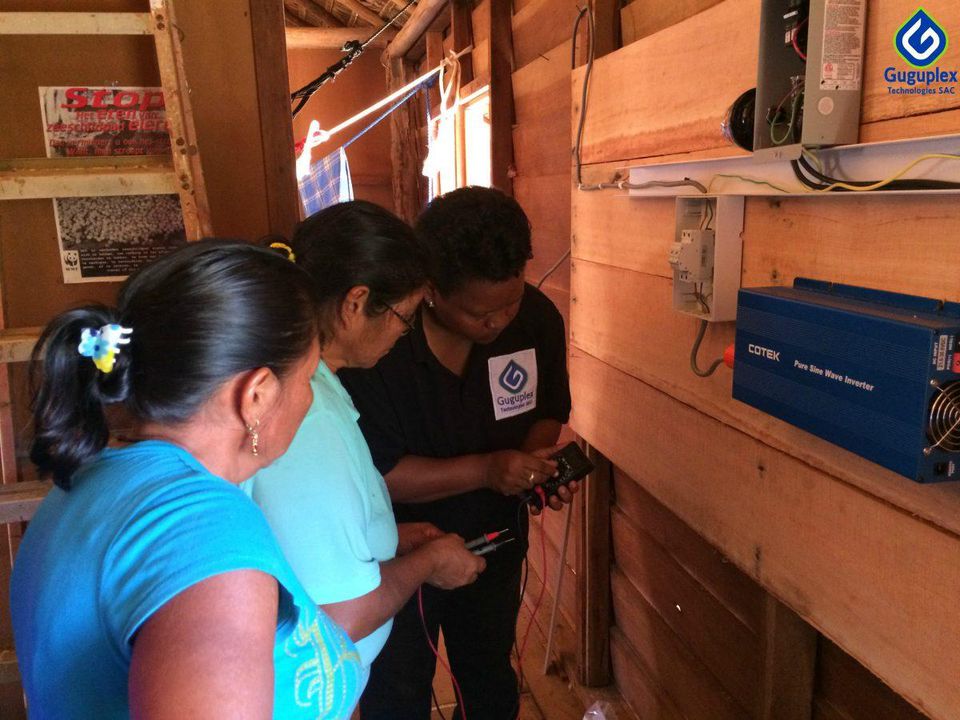
Olmberg-Soesman working with indigenous women in Suriname.
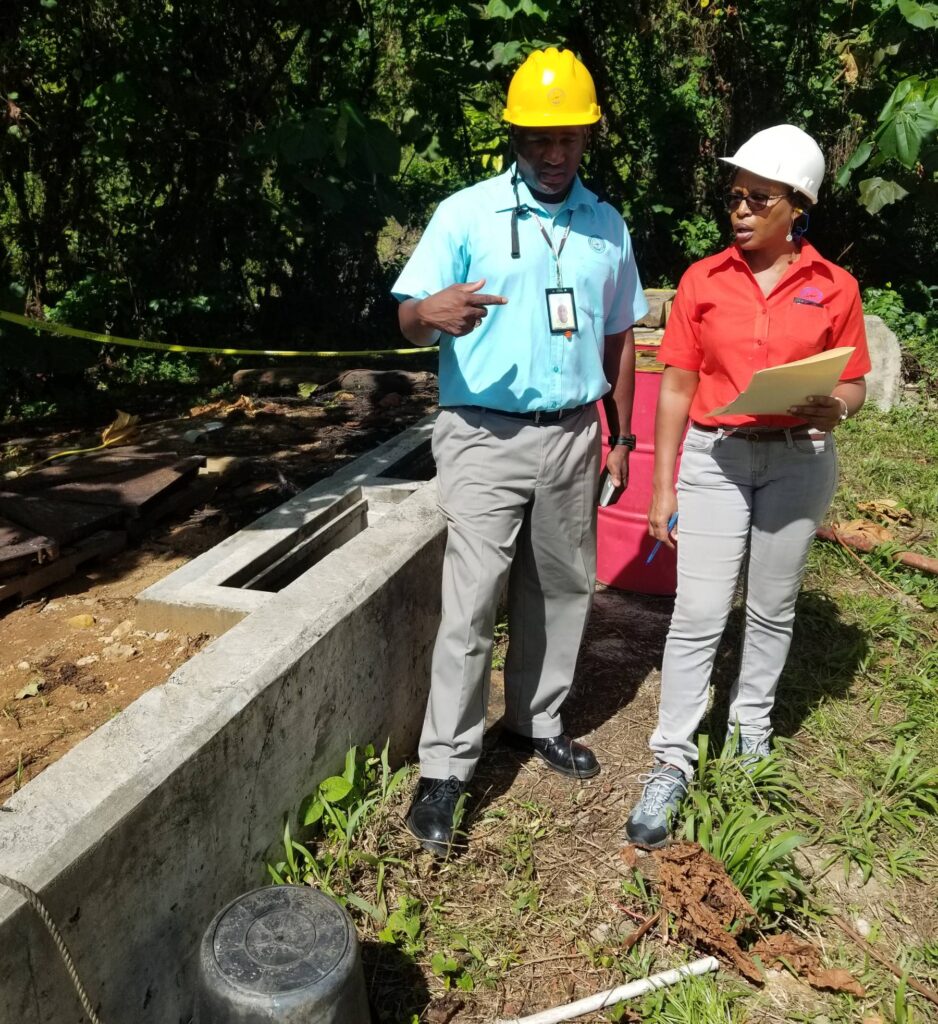
WIRE mentor Ellise Darwton and team performing a safety evaluation at Dominica’s Sugar Loaf power station.
The WIRE Network, which was founded by Chelsea Clinton in 2016 and initially managed by the Clinton Climate Initiative, is now being transferred over to RMI’s Energy Transition Academy (ETA). RMI recognizes how integral women are in implementing adaptation strategies, developing distributed energy resource projects, and strengthening community resilience in the race to meet 2030 goals and combat climate change.
RMI’s activities in the Caribbean result from deep relationships fostered over the years, showcasing the commitment to local communities and solutions led by practitioners on the ground. WIRE alum Charlin Bodley recently joined RMI as an ETA manager to spearhead gender equity efforts. “The participation of women in achieving a just clean energy transition is critical globally, and especially in Small Island Developing States,” says Bodley. “Despite women being affected disproportionately by climate change — the effects of which are most severe in island states — they face many barriers in actively participating in the urgent combat against its ravaging effects. The energy sector in the Caribbean has been identified as one of the least gender-diverse sectors and suffers from long-standing barriers which inhibit the participation of women at all levels of the sector.”
Beyond the Caribbean
Barriers to women in the energy sector are not exclusive to the Caribbean but are a reality in Africa, Southeast Asia, and the Pacific. Our partners also recognize this. For example, the Clean Technology Hub engages and trains local communities on energy access, with a special gender program to support women in leadership roles in Nigeria. Multilateral organizations such as the Asian Development Bank have also recognized this need gap and are working on solutions that connect back to capacity building and advancing the renewable energy workforce. The WIRE Network’s Mentorship Program has piloted an African cohort, and RMI looks forward to eventually expanding to other geographies.
With some exciting developments, RMI’s Energy Transition Academy has adopted an approach built on four pillars that will integrate the WIRE network, and serve as a platform for and commitment to upskilling women, accessible across geographies.
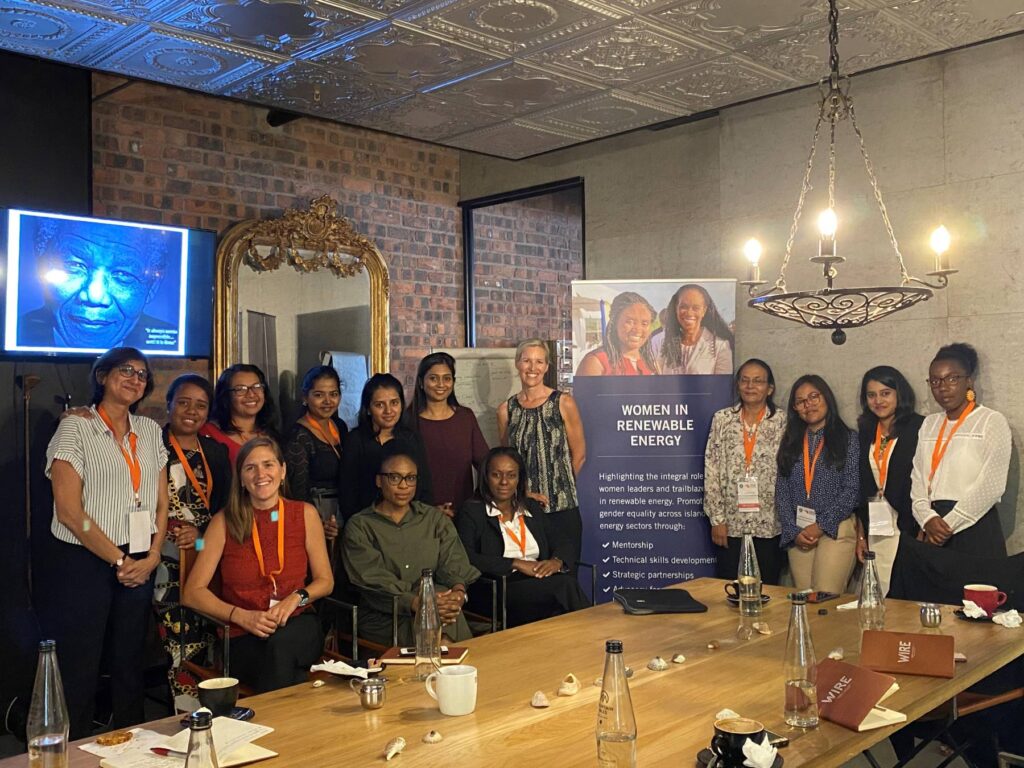
WIRE convening in Cape Town, South Africa, 2020.
Monica Maduekwe was part of the first African WIRE cohort. She grew up in an industrial area in the Nigeria Delta region, where she witnessed the discharge of industrial waste liquids going largely unchecked. So environmental justice is personal for her, not just professional. Today, Maduekwe is a sustainable energy specialist at the Economic Community of West African States (ECOWAS) on Cape Verde, a country comprised of a group of islands off the western coast of Africa.
“I’ve always wanted to mitigate global environmental challenges through better policies, and ECOWAS impacts the lives of 300 million people across 15 countries”, says Maduekwe. “The WIRE Network has helped me enhance the skills I need to combat stereotypes in the renewable energy sector and encouraged me to market my successes.”
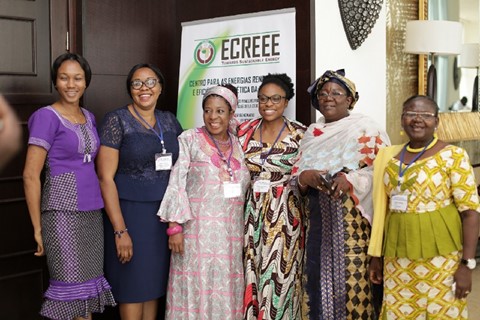
Monica (Third from the right) is pictured here with her colleagues at an ECOWAS Energy Experts workshop. Photo courtesy of Monica Maduekwe.
Climate change requires all hands on deck, and that includes women. Women hold innovative solutions and offer diverse perspectives necessary to face the challenges and threat of climate crises and high energy prices. They have already been at the forefront of leading communities. Still, they need support and recognition in formal leadership positions to scale projects for greater impact. That’s where the WIRE Network comes in. RMI is excited to for the opportunity to accelerate the progress of women in the sector by building on the momentum of this outstanding network.
Anyone is welcome to be a part of the WIRE network! Both men and women at any career level. Sign up for our mailing list for more information and join us!
Are you a mid-senior career woman in the energy sector, living or working in the Caribbean? Are you looking to gain technical knowledge and leadership skills and to expand your professional network? We invite you to join this unique two-year WIRE Network Mentorship Program!
APPLY TODAY! Deadline is October 13, 2022
Follow @RMICaribbean and @RMIAfrica on Twitter for more updates about the WIRE Network or visit https://rmi.org/wire for more information.